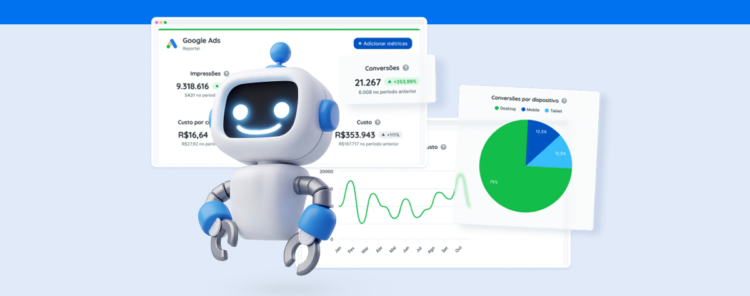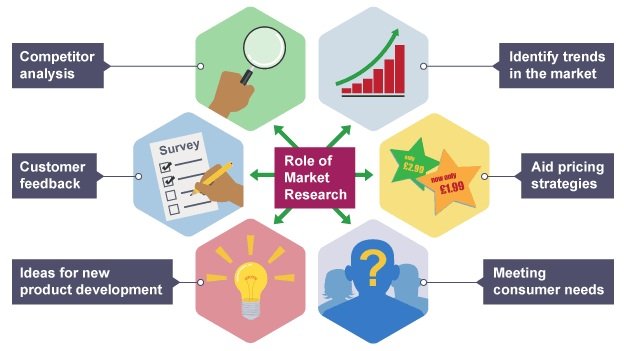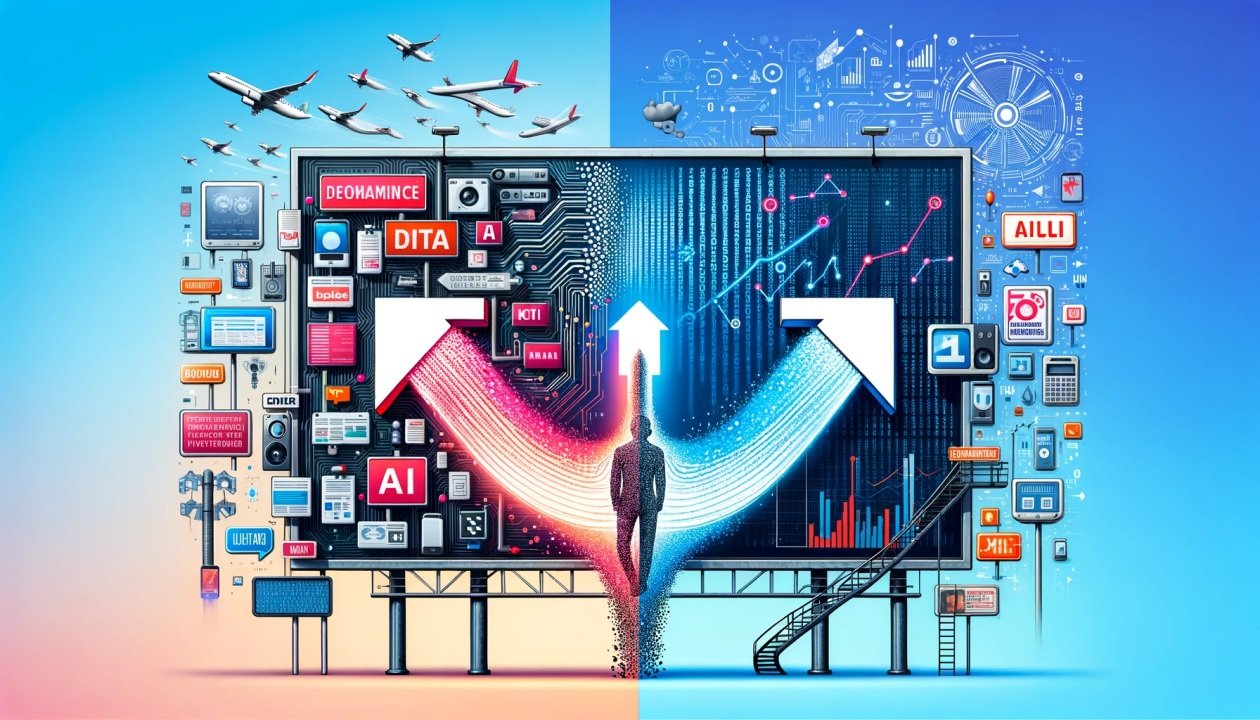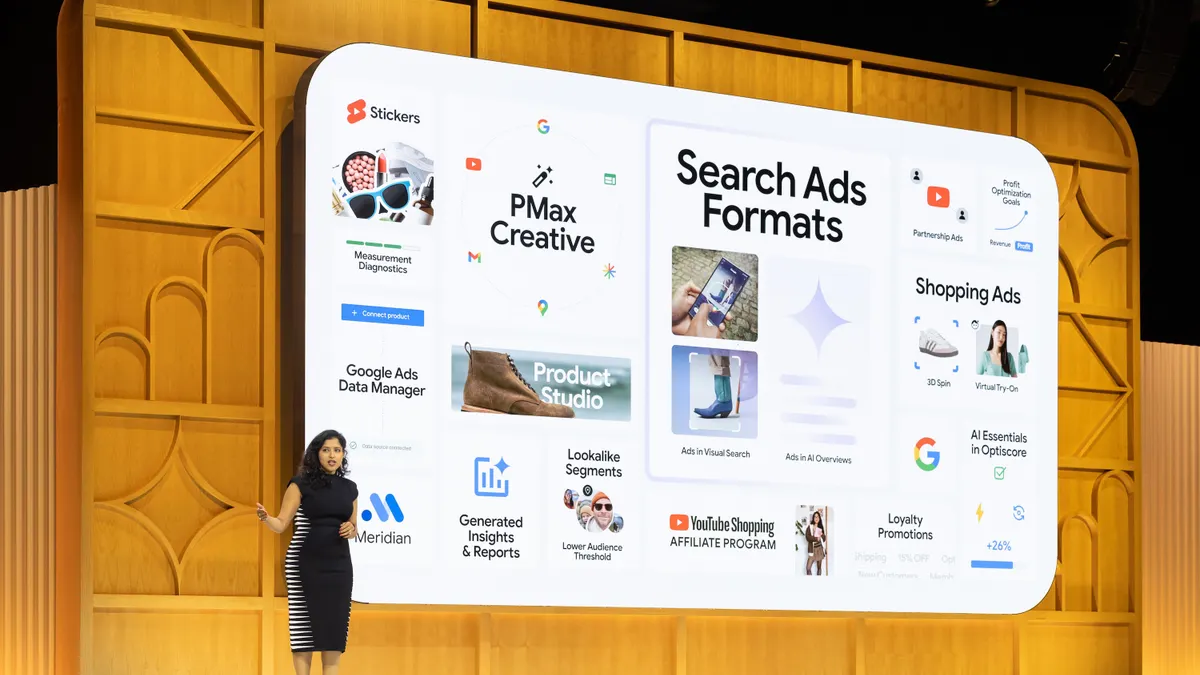Unveiling the Impact of AI on Google’s Search Ads Rankings: Insights from a Recent Trial Exhibit
Introduction to AI and Google’s Search Ads
Artificial Intelligence (AI) has increasingly become a cornerstone of modern digital marketing strategies, particularly in the realm of online advertising. As businesses aim to improve their visibility and engage with target audiences, search ads have emerged as a fundamentally impactful tool. These advertisements are integrated into search engine results, helping brands to connect with potential customers at critical decision points. Google, being a leading search engine, offers robust search ads that leverage its advanced technologies to optimize visibility and engagement.
How Google Uses AI to Enhance Search Ads Performance
AI-Driven Ad Placement and Relevance
Google’s search ads utilize a variety of algorithms and machine learning techniques that are pivotal in determining an ad’s placement and relevance. The platform uses AI to analyze user behavior, search patterns, and numerous other metrics to enhance advertising effectiveness. By leveraging this data, Google delivers highly targeted ads tailored to the specific needs of users—resulting in higher click-through rates (CTR) and improved overall campaign performance. This precision targeting has significant implications for advertisers, who depend on effective ad delivery to drive traffic and increase conversions.
Smart Bidding and Ad Optimization
Beyond just ad placements, Google’s integration of artificial intelligence extends into optimization strategies. AI-powered features like Smart Bidding use real-time data to automatically adjust bids based on predicted performance. This allows advertisers to stay competitive even in fast-changing digital environments.
Whether the goal is conversions, clicks, or impressions, AI ensures that ad spend is optimized for the best results. These intelligent systems dynamically assess variables like device type, location, and time of day, fine-tuning campaigns to reach the most relevant audience segments.
Maximizing ROI for Advertisers
With AI handling bid adjustments and ad targeting, businesses—regardless of size—can experience more efficient campaigns and better ROI. Automated processes reduce manual labor and eliminate much of the guesswork in campaign management. This allows marketers to focus on strategy, creative direction, and long-term growth rather than micromanaging ad mechanics.
Implications for the Future of Digital Marketing
Understanding how AI enhances Google’s search ads is essential, especially in light of findings from recent trials and studies that may influence future digital marketing practices. As the technology evolves, staying informed about how machine learning and automation shape ad delivery and performance will be critical for marketers aiming to stay ahead in a competitive landscape.

Understanding the Mechanisms of AI in Search Ads
In the realm of digital advertising, Google’s search ads are significantly influenced by sophisticated artificial intelligence (AI) algorithms. These algorithms harness the power of machine learning, enabling them to analyze vast amounts of data generated from user interactions. By leveraging a multitude of inputs, from search queries to click-through rates, these systems continuously adapt and optimize ad placements to enhance visibility and relevance, thereby ultimately improving the ads’ effectiveness in generating leads and conversions.
Machine learning, a critical component of AI, plays a pivotal role in refining ad targeting. It identifies patterns in user behavior, preferences, and historical data, allowing for the crafting of highly tailored advertising strategies. For instance, an advertiser targeting the market in Spain might utilize AI to monitor seasonal trends in user searches, thereby optimizing their campaigns for maximum impact during peak periods. Similarly, in the USA, businesses can benefit from AI’s ability to segment audiences based on specific behaviors, enhancing the precision of their Google Ads campaigns.
The significance of keyword relevance cannot be overstated when it comes to Google’s search ads. By analyzing real-time data, AI algorithms determine which keywords are resonating most with users across countries such as Germany, France, and England. This ensures that ads appear prominently in search results when users engage with those relevant terms. For example, an advertisement for an eco-friendly product may see better performance when utilizing trending keywords in Canada that align with current consumer interests. By understanding the intricate mechanics of AI and its influence on data analysis and user behavior tracking, advertisers can better optimize their Google Ads campaigns to elevate their search rankings effectively.
Key Findings from the Trial Exhibit
AI-Driven Enhancements in Ad Relevance and Performance
1) Improved Click-Through Rates with AI Integration
The trial exhibit presented clear evidence that Google’s AI-powered tools significantly enhance ad performance. Advertisements leveraging AI saw a 25% increase in click-through rates (CTR) compared to non-AI-driven campaigns. This indicates the growing importance of intelligent systems in understanding user intent and delivering more relevant ads.
2) Strategic Implications for Advertisers
For advertisers aiming to gain visibility on Google’s search results, incorporating AI becomes not just beneficial but essential. These findings emphasize how AI algorithms can elevate campaign performance by delivering highly tailored ads to the right audiences.
Localization Through AI for Global Campaign Optimization
1) AI Personalization Across Regional Markets
The trial highlighted how localized use of AI in ads significantly boosts effectiveness. In culturally diverse regions, campaigns adapted using Google’s AI tools saw a 30% increase in conversions. This showcases the potential of AI in interpreting and acting on local preferences and behaviors.
2) Real-World Case Studies
Case studies across various countries showed that AI adaptation leads to higher engagement. Companies targeting global audiences can use AI to fine-tune messaging, tone, and design based on regional data insights, maximizing ad impact.
Continuous Learning and Dynamic Optimization
1) The Role of AI in Real-Time Data Analysis
AI’s ability to analyze performance metrics dynamically enables advertisers to make smarter decisions on budget allocation and bidding strategies. These systems learn from user interactions, updating ad delivery and targeting criteria in real time.
2) Optimizing Campaigns through AI Insights
Continuous AI-powered performance evaluation allows for iterative improvement. Advertisers benefit from actionable insights on what works and what doesn’t—empowering them to refine content, keywords, and budgets effectively.
The trial exhibit demonstrates that artificial intelligence is no longer a futuristic add-on but a present-day necessity in digital advertising. Its role in enhancing click-through rates, enabling cultural localization, and driving ongoing optimization signals a fundamental shift in how businesses must approach Google Ads. By embracing AI, advertisers position themselves for better visibility, improved engagement, and higher ROI in an increasingly competitive digital landscape.
Implications for Advertisers in Different Markets
USA – Leveraging Data for Local Relevance
In the United States, advertisers should prioritize the use of data analytics to understand regional search trends. This allows for the customization of Google Ads to resonate with local audiences. Tailoring messages to reflect regional preferences helps improve ad visibility, click-through rates (CTR), and overall Google rankings. Understanding seasonal and demographic-specific behaviors can further enhance campaign performance.
France – Culturally Aligned Advertising
French consumers value brands that reflect their culture and values. Advertisers in France should ensure that their ad content—including language, visuals, and tone—aligns with national sentiments. Emotional connection through localized storytelling and culturally relevant messaging can drive engagement and trust, improving brand perception and ad effectiveness.
Germany – Legal Compliance and Precision
Germany’s strict digital advertising regulations require advertisers to be fully compliant with data privacy laws such as GDPR. Content must also reflect the local preference for precise, fact-based information. Advertisers should ensure transparency, use verified claims, and avoid over-promising. Compliance not only ensures legality but also builds credibility among discerning German audiences.
Spain – Reflecting Cultural Nuance
In Spain, advertisers benefit from creating campaigns that reflect cultural expressions and local identity. Using regionally recognized idioms, holidays, and traditions in ad creatives can lead to higher resonance. A well-developed keyword strategy that mirrors popular local search terms can significantly enhance the discoverability of ads.
England – Trust Through Reviews and Ratings
English consumers often rely heavily on peer reviews and ratings when making purchasing decisions. Advertisers should emphasize social proof within their ad content and landing pages. Incorporating testimonials, star ratings, and case studies into ad extensions and copy can boost consumer trust and increase conversion rates.
Canada – Bilingual Optimization
Given Canada’s dual-language environment, it’s crucial for advertisers to offer campaigns in both English and French. Ensuring that Google Ads are properly localized for both linguistic audiences enhances accessibility and broadens reach. A/B testing content in both languages can also provide insights into regional performance.
Custom Strategies for Global Success
The integration of Google’s AI into search ads demands tailored strategies that reflect each market’s cultural, linguistic, and legal context. By aligning ads with local behaviors and utilizing AI-powered targeting, advertisers can increase visibility, improve Google rankings, and drive more effective results across global campaigns.

Challenges and Considerations with AI in Advertising
The integration of artificial intelligence (AI) into Google Ads and similar advertising platforms has brought forth a multitude of benefits, yet it also presents several challenges that advertisers must navigate. One prominent concern is algorithm bias, which can significantly affect google ranking. AI systems rely on historical data to inform their decision-making processes. If the data used to train these algorithms is biased or unrepresentative, the outcomes can perpetuate existing inequalities or skewed targeting, inadvertently marginalizing certain groups of consumers. This raises ethical considerations about the fairness of ad placements and the representation of diverse audiences.
Another critical issue that advertisers must tackle is data privacy. As regulations regarding consumer data become increasingly stringent, navigating the compliance landscape can become challenging for companies that utilize AI in their advertising strategies. For example, laws such as the General Data Protection Regulation (GDPR) in Europe and the California Consumer Privacy Act (CCPA) in the USA impose strict guidelines on how personal data is collected, stored, and utilized. Advertisers utilizing Google’s search ads must ensure that their practices align with these regulations to avoid significant penalties, while still leveraging AI effectively to optimize their campaigns.
Moreover, the dynamic nature of technology necessitates ongoing adjustments to policies and practices. Regulations vary widely from one region to another, with countries like Canada having distinct rules governing digital advertising. As a result, advertisers must remain vigilant and adaptable to ensure compliance across jurisdictions, which can complicate the implementation of AI-driven strategies. This multifaceted landscape requires advertisers to continuously assess the implications of AI technology on their campaigns while mitigating potential risks associated with algorithm bias and privacy concerns.
Future of AI in Search Advertising
The landscape of search advertising is undergoing a significant transformation, largely driven by advancements in artificial intelligence (AI). As we consider the future trajectory of Google’s search ads, several trends are poised to reshape how businesses engage with their audiences and optimize their marketing strategies. Emerging technologies—particularly those leveraging machine learning and data analytics—are enhancing the effectiveness and efficiency of advertising campaigns.
Smarter Targeting with AI Algorithms
One notable trend is the increasing reliance on AI algorithms to refine ad targeting and improve relevance. Google AI is now capable of predicting user behavior more accurately, leading to highly personalized ad experiences. These tailored ads result in better engagement and higher conversion rates. Companies operating in competitive markets like Germany and Spain must recognize these shifts and adjust their ad strategies accordingly.
Accessibility of AI for All Business Sizes
The democratization of AI is making these advanced tools accessible even to small and medium-sized businesses. This shift is narrowing the gap between traditional and digital advertising, empowering advertisers with limited budgets to take advantage of analytics and automation tools that were once reserved for larger corporations. By incorporating AI-powered insights, businesses can improve their visibility and Google search rankings.
Embracing Data-Driven Decision Making
As businesses become more adept at integrating AI into their Google Ads campaigns, there’s a noticeable shift toward data-driven marketing decisions. Rather than relying on intuition or manual testing, marketers are leveraging real-time analytics and predictive modeling to shape their advertising strategies more effectively.
Preparing for the Rise of Voice and Visual Search
Looking ahead, AI’s role in search advertising is expected to evolve beyond optimization. Emerging technologies like voice and visual search are set to disrupt how ads are served, ranked, and interacted with. Companies need to be proactive in exploring and adopting these capabilities to maintain a competitive edge. Forward-thinking businesses will begin optimizing their content and ad formats for these new search modalities.
Comparative Analysis: Traditional vs. AI-Driven Ads
Understanding Traditional Advertising Methods
Traditional advertising strategies have long relied on broad targeting techniques rooted in demographic data and historical performance. These methods typically involve:
Segmenting audiences based on age, gender, income, or geography
Crafting generalized messaging for mass appeal
Evaluating past campaign results to shape future initiatives
While these tactics were once industry standards, they often lack the agility and precision required in today’s fast-paced digital environment.

The Rise of AI-Driven Search Advertising
Artificial Intelligence (AI) has revolutionized the advertising landscape, especially in search ads. Platforms like Google Ads use advanced machine learning algorithms to:
Analyze vast amounts of data in real time
Predict user behavior based on search history and interactions
Serve hyper-targeted ads tailored to individual users
For example, when a user types a query into Google, the AI assesses their past behavior and contextual signals to display the most relevant ad — significantly improving the chances of conversion.
Precision Targeting and Improved ROI
One of the standout benefits of AI-powered search ads is their superior targeting accuracy. Unlike traditional methods, AI can:
Dynamically adjust campaigns based on real-time data
Optimize bidding strategies for better cost-efficiency
Deliver personalized experiences to specific users
This level of targeting not only reduces wasted ad spend but also boosts ROI by ensuring ads reach those most likely to engage or convert.
The Adaptive Advantage of Machine Learning
AI systems continually learn and evolve. As more data becomes available, machine learning algorithms:
Refine their targeting and messaging
Detect patterns and shifts in consumer behavior
Automatically test and implement changes for improved performance
Such adaptability allows for continuous campaign optimization — a feature traditional advertising methods lack.
The Continued Relevance of Traditional Methods
Despite AI’s advantages, traditional advertising isn’t obsolete. It remains effective in scenarios such as:
Niche markets with limited data
Broad awareness campaigns for new product launches
Offline and print channels that don’t rely on user behavior
In these cases, demographic-based targeting and brand storytelling can still yield positive results.
Why Businesses Should Embrace AI in Google Search Ads
Adopting AI-driven advertising offers a strategic edge in an increasingly competitive market. Companies leveraging Google’s AI capabilities benefit from:
Enhanced Google search rankings due to relevant ad targeting
Smarter budget allocation through automated bidding
Improved user experience with timely, personalized messaging
A Paradigm Shift in Advertising
The shift from traditional to AI-driven advertising is not merely a trend — it’s a necessity. Businesses that integrate machine learning and real-time analytics into their search ad strategies are better positioned to thrive in the digital economy. While traditional methods retain value in specific contexts, the efficiency, accuracy, and adaptability of AI mark a new era of advertising excellence.
Case Studies of Successful AI-Driven Campaigns
Artificial intelligence (AI) has revolutionized the digital marketing landscape, particularly when it comes to Google’s search ads. Numerous brands have harnessed the power of Google AI to enhance their campaign performance and drive impressive engagement and conversions. This section explores a few real-world case studies showcasing successful AI-driven campaigns from various countries, each illustrating unique strategies that contributed to improved google ranking and effectiveness.
A prominent example comes from a global e-commerce giant based in the United States, which implemented Google Ads enhanced by AI technology. By utilizing machine learning to analyze customer behavior, the company was able to optimize its bidding strategies. The AI system adjusted bids in real-time based on factors such as time of day and user location, resulting in a 30% increase in conversion rates. This case highlights the ability of AI to dynamically adapt campaigns to changing market conditions, ultimately improving visibility and click-through rates within google’s search ads.
Another noteworthy case emerged from an Australian travel agency that effectively utilized Google AI for targeting niche markets. The agency adopted AI algorithms to analyze past customer interactions and preferences, allowing it to create personalized ad content tailored to individual users. As a result, the agency experienced a substantial uplift in engagement, with a 25% reduction in cost-per-acquisition (CPA). This exemplifies how understanding local nuances and leveraging AI technologies can significantly enhance campaign performance.
In Europe, a retail chain used Google AI tools to optimize its ad placements across various platforms. By analyzing data related to user behavior, alongside geographic and demographic variables, the chain could adjust its ad strategy in real-time. This approach not only improved their google ranking but also led to a notable increase in foot traffic to their physical stores.
These case studies demonstrate the effectiveness of integrating AI within Google Ads and underscore the importance of tailoring strategies to local markets for optimal results. As businesses continue to explore AI technologies, these insights provide valuable lessons for future advertising campaigns.
Conclusion: The Evolving Landscape of Google Ads with AI
In recent years, the landscape of digital advertising has undergone a significant transformation, particularly with the advancement of artificial intelligence (AI) technologies. This evolution is exemplified by the impact of AI on Google’s search ads rankings, which have become increasingly intricate and data-driven. As advertisers across the globe—particularly in key markets such as the USA, Spain, Germany, England, and Canada—navigate this new terrain, it is vital for them to comprehend the mechanics behind these changes to leverage their advertising strategies effectively.
The integration of AI into Google ads has redefined how search ads function, enabling a more nuanced understanding of consumer behavior and preferences. Through AI, Google can analyze extensive datasets with remarkable speed and accuracy, leading to better predictions and placements for ads. This offers advertisers an opportunity to optimize their campaigns by aligning their content more closely with user intent, potentially leading to improved google ranking and enhanced visibility within search results.
Moreover, understanding the implications of Google’s AI advancements equips advertisers with the knowledge required to adapt to ongoing changes in advertising effectiveness. As AI continues to evolve within Google’s ecosystem, maintaining an up-to-date approach will be essential. Advertisers must not only be aware of the technical aspects of google ads but also remain flexible in modifying their strategies to benefit from ongoing innovations in AI, ensuring that they can compete effectively in the highly dynamic digital marketing space.
Ultimately, grappling with the influence of AI on search ads is not merely a technical challenge but also an opportunity for growth and evolution in advertising practices. By embracing these changes, advertisers can tap into the full potential of Google’s search ads, thereby enhancing their reach and effectiveness in a constantly changing digital landscape.








Leave a Comment